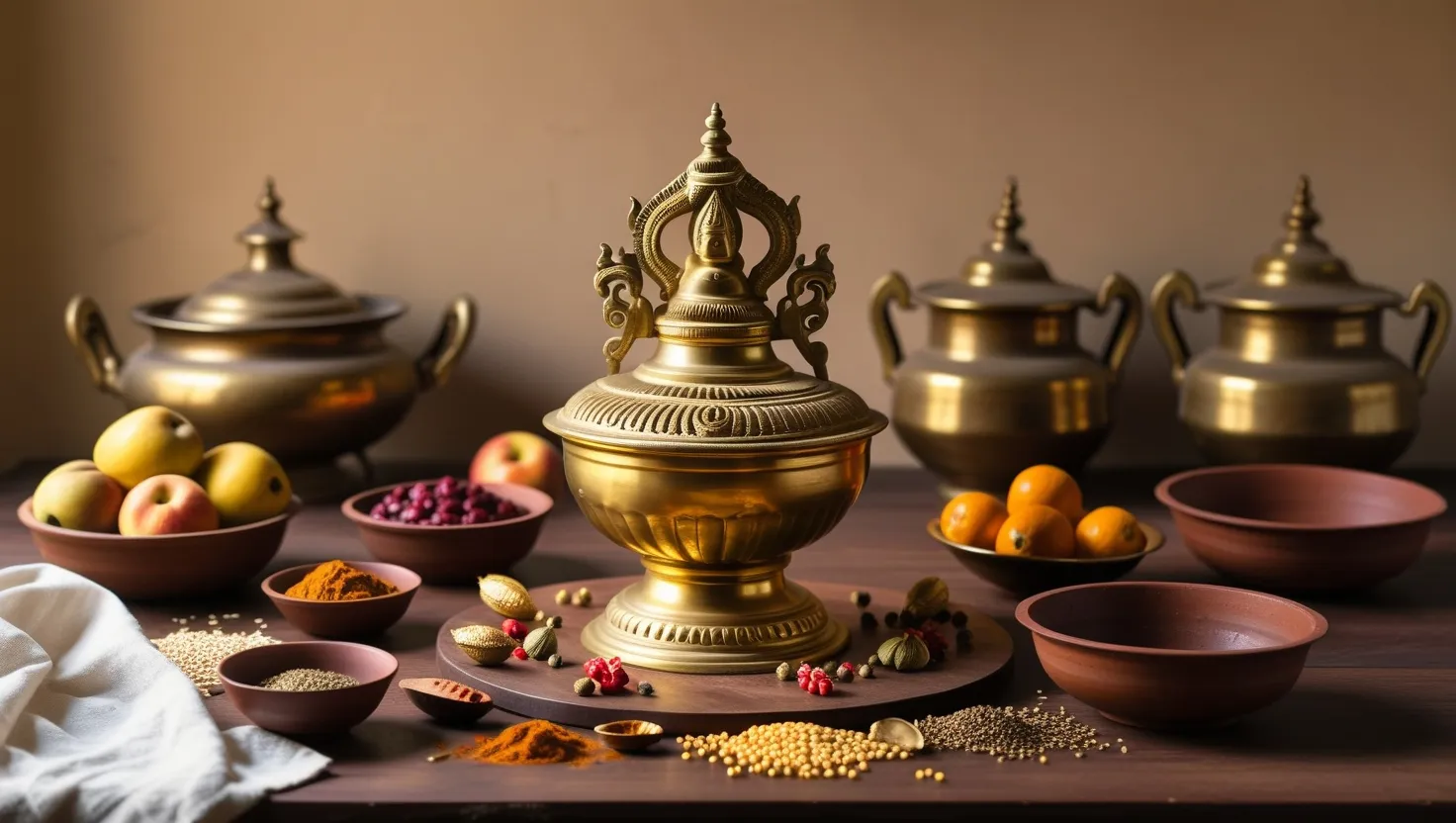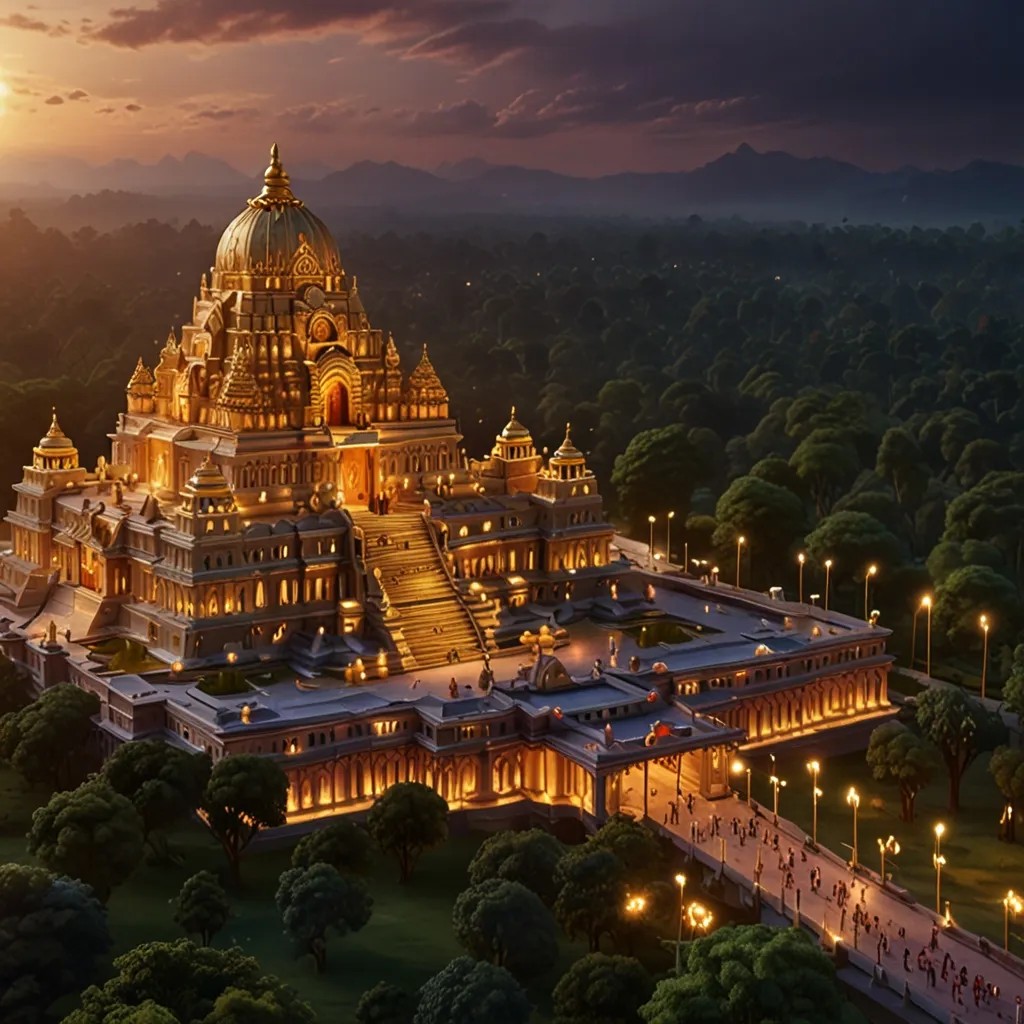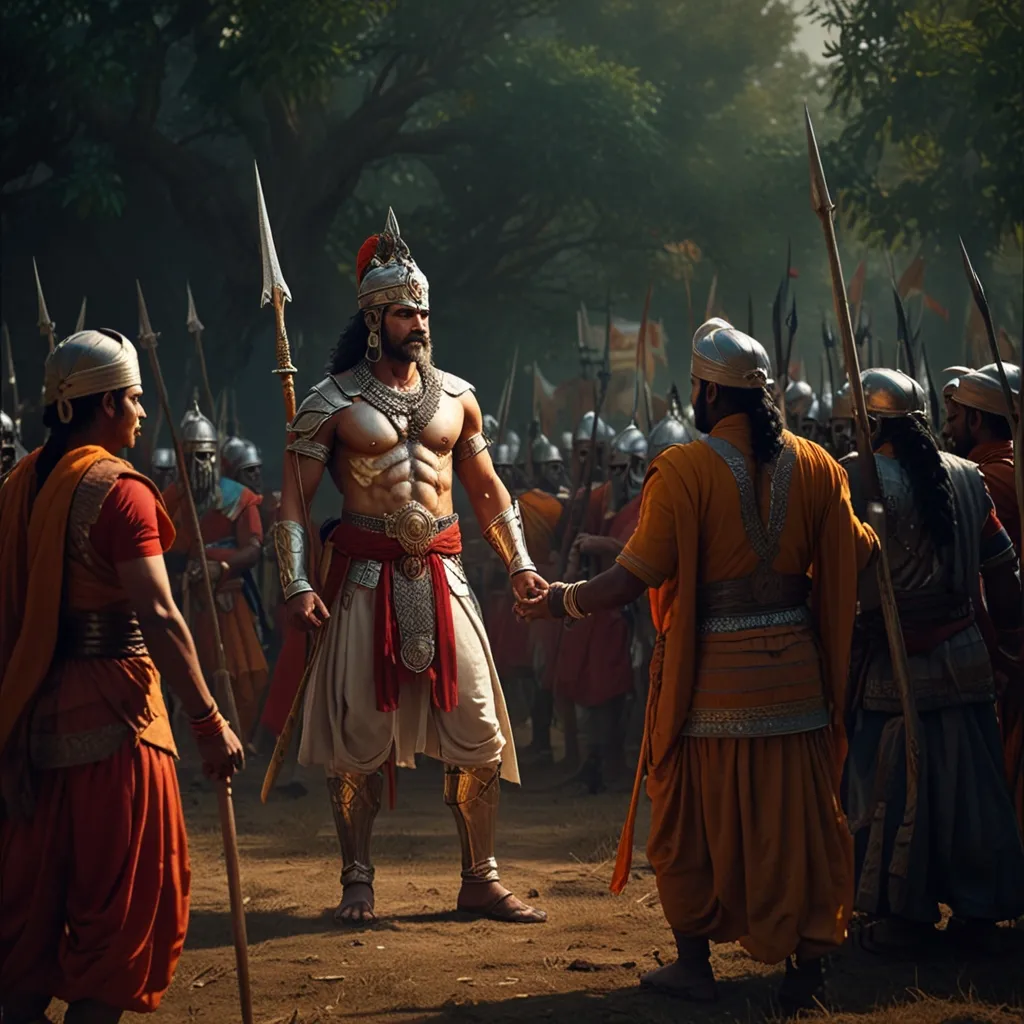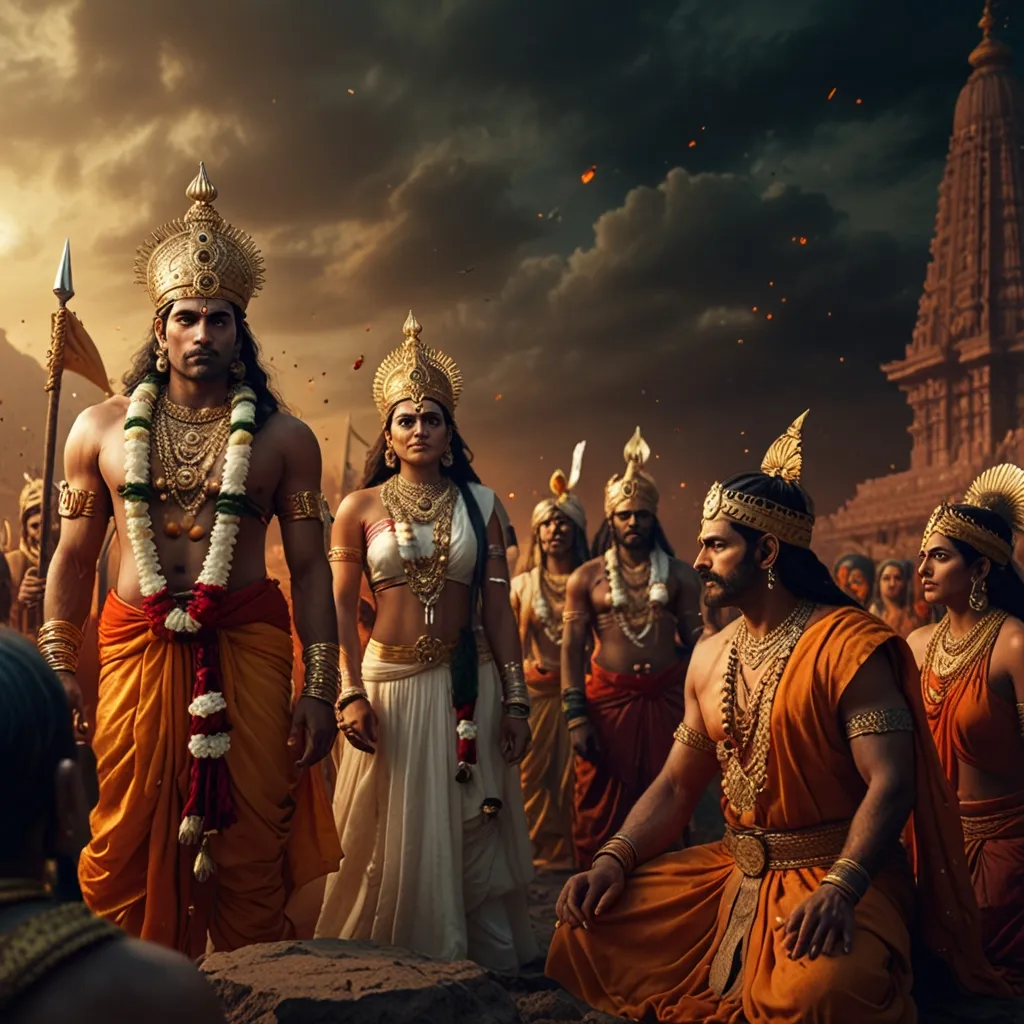Food in the Mahabharata isn’t just something you eat to survive. It’s a force that shapes destinies, determines power, and lays bare the innermost nature of its characters. It acts as a kind of mirror, showing us much more than simple hunger or hospitality. When I read the Mahabharata, what strikes me most is the way food weaves through every moment of ambition, rivalry, loss, and renewal.
Let’s begin with the most extraordinary symbol: Draupadi’s Akshaya Patra, the divine vessel that never runs dry. Blessed by the Sun, it sustains the Pandavas during their exile, feeding not only them but any sage or guest who comes their way. Yet, it comes with rules—Draupadi must eat last. The vessel only works until her meal is taken. Isn’t it telling that in this cycle of plenty, the one serving is also the last to partake? This arrangement doesn’t just test Draupadi’s humility; it reflects a subtle lesson in power and responsibility. The Akshaya Patra stands for a kind of leadership that puts others before oneself, upends the usual idea of privilege, and presents provision as a sacred duty, not a reward.
But what happens when food turns from blessing to weapon? The poisoned feast at Pramanakoti is one such turning point. Duryodhana’s offer of a meal swiftly turns vicious—his plan is to kill Bhima, his own cousin, by lacing his food with poison. Here, the table becomes a battlefield, stripping away any illusion of family ties. Bhima survives through the unlikely strength of his parentage, but the event burns a permanent mark into the story. Can you think of another moment where a meal changes the path of fate so sharply? Food, in this case, becomes the medium for betrayal and for the unleashing of rage that will ripple across generations.
“Tell me what you eat, and I will tell you what you are.” — Jean Anthelme Brillat-Savarin
Even outside of grand gestures and crimes, food’s role in shaping character emerges again and again. Take Bhima in exile—a giant among warriors, yet forced into hiding as Vallabha the cook in King Virata’s court. There’s an undeniable irony. Bhima, known for his appetite and strength, channels those same qualities into culinary skill. Here, food becomes an exercise in humility and artistry. Have you ever thought about how serving others, even as a disguise, can bring out a side of ourselves we rarely expect? Bhima’s role in the kitchen not only keeps him hidden but also reminds us that strength is just as real in service as it is in battle.
But hunger in the Mahabharata is not always physical. Karna’s story brings to light another form of deprivation. Born into obscurity, he’s denied the education he craves because of his supposed low birth. Wanting to become an archer, Karna pretends to be a Brahmin to learn from Parashurama. When his true background is revealed, he is not just expelled—he is cursed, doomed to forget vital skills when he needs them most. Karna’s hunger is for dignity and acceptance. Isn’t it haunting how the need for nourishment can drive someone towards both greatness and ruin?
“Hungry not only for bread – but hungry for love.” — Mother Teresa
There’s also another kind of feast—the one that wounds rather than nourishes. At the inauguration of Indraprastha’s grand hall, Duryodhana finds himself bewildered by magic—he mistakes water for glass, stumbles and falls, and is laughed at by Draupadi and others. The opulence of the meal only sharpens his humiliation. What lingers most is not the food but the sting to his pride. From that small humiliation, the seeds of the great war are sown. Have you noticed how sometimes the most devastating hurts come, not from swords, but from embarrassment shared over a meal?
When the tides turn and the Pandavas are exiled to the forests, their tables shrink from royal banquets to whatever the wild can offer. Hunting and foraging become survival. The brothers, once surrounded by servants and abundance, must learn to make do. This forced simplicity strips away all pretense. They learn to live off the land, to respect each meal as a gift of nature, and to find resilience in hardship. If you’ve ever spent time away from comfort, you know how quickly hunger can teach humility.
“Civilization as it is known today could not have evolved, nor can it survive, without an adequate food supply.” — Norman Borlaug
But the Mahabharata’s approach to food isn’t just rooted in survival or power struggles. It’s also about ritual and cosmic order. Yudhishthira, in particular, is shown performing elaborate sacrifices where food plays a central role. These aren’t just acts of piety—they’re statements of responsibility. The king feeds not only the priests but also the common folk, linking his authority to his generosity. In these rituals, sharing food isn’t just hospitality—it’s an act that binds the ruler to his people, and the people to the divine.
Another layer to consider is the symbolism of food as devotion and exchange, especially in moments involving Krishna. The story goes that Krishna accepted even the humblest offering—dried rice from Sudama, or a single leaf from Draupadi—valuing the love and intention far above the extravagance of the gift. Food, here, becomes love made tangible. It’s a reminder that what matters is not the feast, but the feeling behind it. When was the last time a simple meal, shared with real affection, meant more than anything money could buy?
Food in the Mahabharata isn’t always vegetarian fare, either. The text holds a mirror to the period’s realities—meat-eating was common across all castes, and hunting formed a part of royal and ascetic life. Sacrificial offerings included animal flesh, and the act of consuming meat was often linked with both privilege and obligation. But even here, there’s tension—the killing involved in feeding oneself reflects the costs paid by civilization. The earth goddess is seen both as provider and as one who exacts a price for what is taken from her. How often do we pause to consider the true cost behind what’s on our plate?
“One cannot think well, love well, sleep well, if one has not dined well.” — Virginia Woolf
Every meal in the Mahabharata is a crossroads. Who is included? Who is left out? Who serves, and who is served? Famine isn’t simply a lack of food—it’s a marker of injustice, neglect, or the failure of rulers. Conversely, feasts aren’t just abundance—they’re moments where generosity and envy, loyalty and betrayal, can all come to the surface. The epic pushes us to notice the small details: the act of eating together can cement alliances or shatter relationships. Even a simple act—like Draupadi eating last—can cast long shadows over the fate of kingdoms.
Perhaps the greatest lesson is that food, in this ancient story, acts as a measure of dharma. To feed others is to fulfill a cosmic responsibility. To poison a meal is to break the moral order. Hunger, whether for bread or recognition or justice, is never just about the body—it’s the soul’s cry for what is fair and true.
So as I look back on the Mahabharata, I find myself returning, again and again, to the moments where hunger and satisfaction, feast and famine, are more than just moments—they are the very stuff of life’s drama. Food, after all, is not just what keeps the body going. It is what binds us, tests us, and, at times, decides our destiny.
“How can a nation be great if its bread tastes like kleenex?” — Julia Child
As you reflect on your own meals, remember: every bite tells a story. Sometimes, the smallest offering, or the simplest feast, carries within it the weight of the world. In every shared meal, we confront the most basic question of all: what kind of world are we building, and whom does our table serve?






